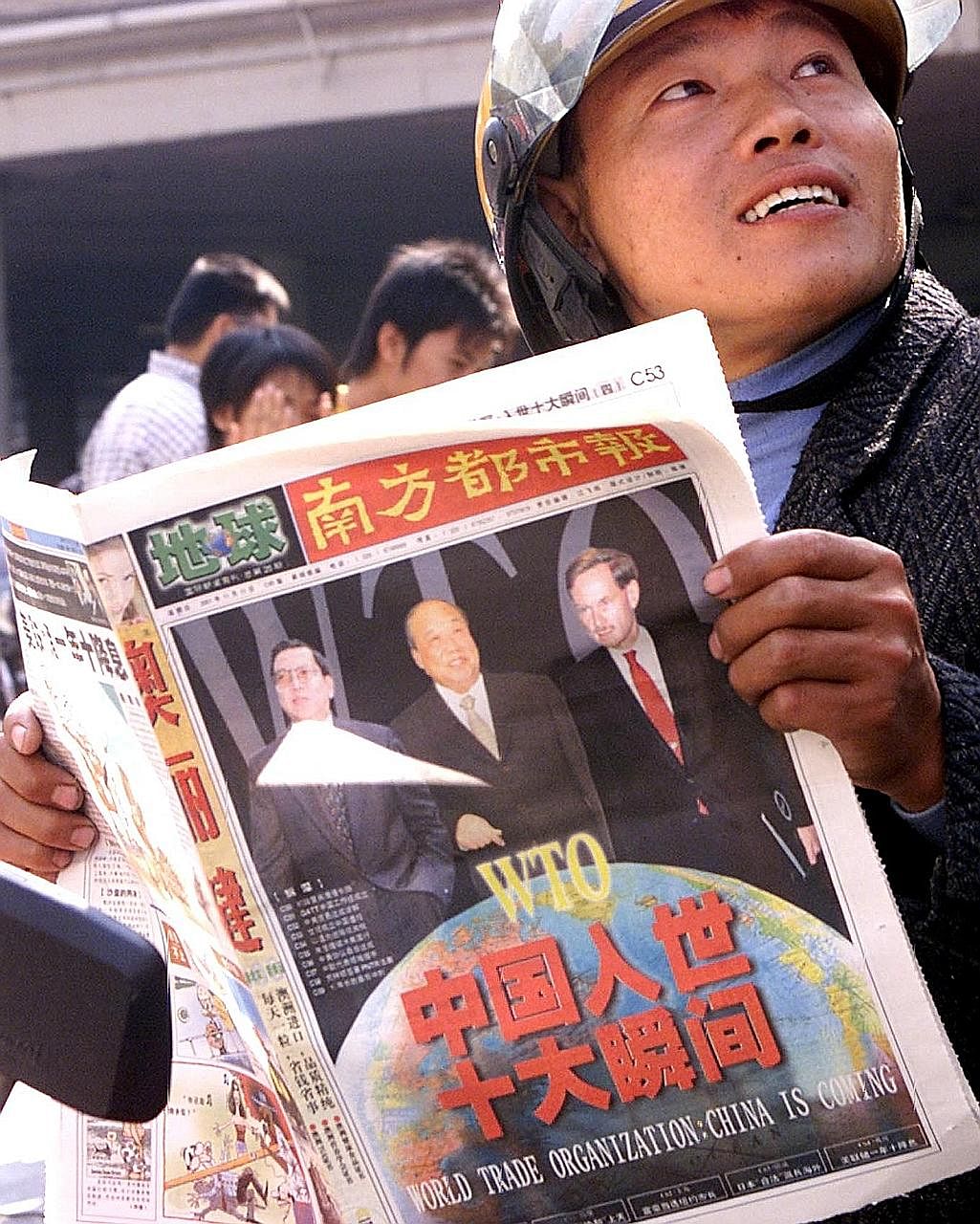BEIJING • China's battle for recognition as a market economy that would help it avoid penalties from key trade partners has been thwarted, as a key clause in Beijing's deal to join the World Trade Organisation (WTO) expired yesterday.
As China marks the 15th anniversary of its accession to the WTO, the United States, European Union and Japan are maintaining tough rules that protect them from cheap Chinese products flooding their markets.
An outraged Beijing said the failure of its major trade partners to grant China market economy status on Dec 11 as promised was an example of "covert protectionism" and "double standard" by the West.
Beijing highly covets market economy status, which would make it more difficult for other countries to launch anti-dumping cases against it. Dumping is when a country prices its exports below what it would charge for the same product in its home market.
When China joined the WTO on Dec 11, 2001, it was written into the terms of the deal that member states could treat it as a non-market economy, allowing them to impose heavy anti-dumping duties on the basis that its low prices did not reflect market reality.

China was told all that would change by the end of 2016 when it would be upgraded to market economy status.
But rather than enjoying this trade advantage, Beijing continues to face a climate of mistrust towards its exports, with critics arguing the country has not done enough to qualify for the designation.
International trade experts say China will have to start a lengthy legal battle at the WTO against its trade partners in order to get recognition of its new status.
In a vitriolic commentary, the official Xinhua news agency said: "The refusal is nothing short of covert protectionism, which runs against the trend of globalisation and poisons the recovery of the global economy," it said on Friday, denouncing "another double standard applied by the West against China".
A statement by the US Department of Commerce said: "The US remains concerned about serious imbalances in China's state-directed economy, such as widespread production overcapacity, including in the steel and aluminium industries, and significant state ownership in many industries and sectors.
"China has not made the reforms necessary to operate on market principles."
Washington will therefore continue to apply "alternative" methods for calculating dumping margins, added the department.
That is unlikely to change under a Donald Trump administration after the President-elect threatened to impose 45 per cent punitive tariffs to protect American jobs.
The position is also supported by the Alliance for American Manufacturing (AAM), who say China's trade surplus has cost 3.2 million jobs in the US since Beijing joined the WTO.
"It is no coincidence that economic pain played such a central role this election season. For 15 years our workers and makers have asked China to play by the rules, and for 15 years Beijing hasn't budged," according to Mr Scott Paul, president of the AAM, in a statement that said over 1,000 anti-dumping cases have been initiated against China globally since 1995.
Meanwhile, Brussels is taking a somewhat different approach after the European Commission announced last month a new method to combat price dumping which does not specifically target China, but could apply to any country suspected of selling at a loss.
"This avoids possible retaliation from China since everyone will be treated the same way," said Mr Franck Proust, a member of the European Parliament.
But any decision on China must have the agreement of the EU's 28 member states as well as the European Parliament, something which the bloc was unable to achieve before the Dec 11 deadline.
"We have lost a lot of time. This date, we have known it was coming since 2001 but unfortunately this proposal won't be enacted before the summer of 2017 at best," Mr Proust added, leaving plenty of time for China to appeal to the WTO's dispute settlement body.
Japan also said it would not recognise its neighbour as a market economy.
AGENCE FRANCE-PRESSE
